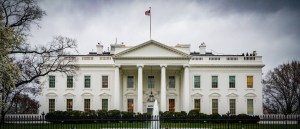Lawmakers call for a ‘revolution’ to prepare Pentagon for the future of defense

A bipartisan congressional task force is urging the Department of Defense to undertake a “revolution” in how it buys, plans and prepares for the future of conflict, emphasizing investing more in artificial intelligence and other emerging technology.
The Future of Defense Task Force, co-chaired by Reps. Seth Moulton, D-Mass., and Jim Banks, R-Ind., published a new report Tuesday listing recommendations for how the DOD should get rid of its legacy weapons systems and fully embrace emerging technology to keep up with so-called Great Power Competition.
The report’s biggest recommendation is a Manhattan Project-style push for the DOD to harness artificial intelligence. It also calls on the DOD’s major weapons-buying programs to consider at least one AI or autonomous alternative whenever making new purchases.
The task force co-chairs said they plan to dedicate the rest of their careers in Congress to accomplishing future-minded reform in the military, evolving the report from what is mostly just a list of recommendations now to meaningful change.
“We are calling for a real revolution in how we approach our national security,” Moulton said during a Brookings webinar unveiling the report.
Most of that revolution needs to happen in the department’s attitude on acquisition and how it spends money, Banks added, calling for the DOD to divest from its legacy systems, many of which were designed within the context of fighting insurgent terrorists or even the Cold War. The document does not point to any specific programs but instead urges lawmakers in Congress to cut funding to programs through the yearly National Defense Authorization Act.
“We need a new attitude in the Pentagon that is far less risk-averse,” Banks said.
Increasing risk-taking around defense acquisition has been a constant talking point by some members of Congress and Pentagon leadership, with limited results so far. Recently, the commanding general of the new Space Force said he would accept “moderate risk” when it comes to new systems his technology-focused branch will pursue.
All about AI
The report says that AI is one of the most critical parts of the new technology and innovation ecosystem the DOD needs to tap into. It recommends increasing funding for organizations like AFWERX, the Defense Innovation Unit and others that can rapidly get contracts into non-traditional companies’ hands. The task force also wants to see increases in basic research and development, as many other reports have called for. Other types of technologies are also highlighted in the report, including biotechnology, quantum computing and others.
Along with the push for AI in the DOD, the report urges the creation of international pacts and treaties on the ethical use of AI.
“Because of the United States’ commitment to human rights, and to ensure those rights are enshrined in its use, the United States should lead in the formulation and ratification of a global treaty on artificial intelligence in the vein of the Geneva Conventions, the Chemical Weapons Convention, and the Nuclear Non-Proliferation Treaty,” the report states.
Supply chain monitoring
Economic influence and supply chain vulnerabilities remain open targets for the Pentagon, according to the report.
It suggests a closer relationship with the Department of Homeland Security’s supply chain monitoring groups and the Cybersecurity and Infrastructure Security Agency (CISA). However, it doesn’t mention the DOD’s Cybersecurity Maturity Model Certification, which aims to close cybersecurity vulnerabilities in the defense industrial base.
The report also recommends creating new supply chain monitoring offices, like the “National Supply Chain Intelligence Center” that would be housed under the Office of the Director of National Intelligence to monitor and protect U.S. supply chain interests.
“The United States must ensure supply chain resiliency within both the military and civilian sectors by establishing reliable manufacturing sources and incentivizing the return of manufacturing to the homeland through fiscal policy, tax incentives, and other financial and policy measures,” the report states.




